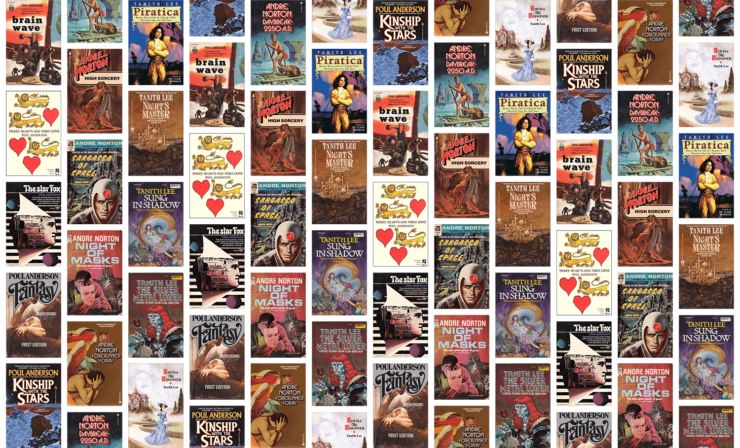There are several ways in which authors can provide the public with ample reading material. One is, of course, to compose individual books of great length (like these, for example). Another is simply to write a lot of books. (…No, even more than that!) Of course, not every prolific author writes books worth reading. Allow me to suggest three prolific authors (now deceased) who often (but not always) wrote books worth reading. For each of these three authors, I’ve chosen five works that I think are well worth reading.
It is not a coincidence that this essay was written after completing a grand personal library project that required alphabetizing and shelving a lot of books. One soon notices that which authors are best represented in one’s library. As far as vintage authors go, these are my top three by shelf-feet.
Poul Anderson (November 25, 1926 — July 31, 2001)
First published in 1947, Anderson’s career spanned seven decades. Although he slowed down towards the end of that period, in the end he was responsible for an astounding number of words and books. This was not an uncommon pattern for authors who started writing in the era of pulp magazines. Authors were paid poor per-word rates and learned to write quickly if they wanted to eat. Anderson was one of few from that era whose material was, well, often quite readable. Anderson combined quantity with range, publishing many works in multiple genres.
Brain Wave (1954)
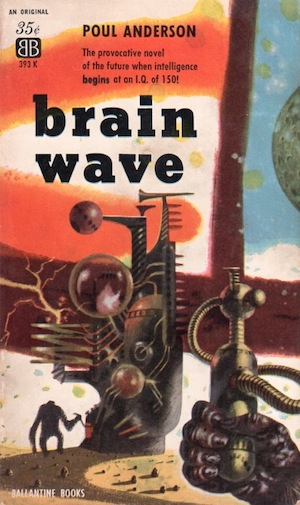
Earth is transformed when the planet emerges from an intelligence-suppressing zone. Animals find themselves as intelligent as humans. Humans find themselves as gods. But raw intelligence is not the same thing as wisdom. Determining how to use these new cognitive abilities will be a challenge.
Three Hearts and Three Lions (1961)
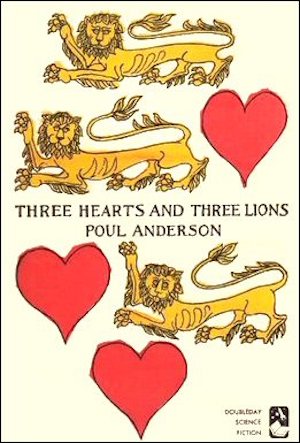
Shot while fighting Nazis, Holger Carlsen finds himself in a world where Carolingian legends are simple fact. A modern Dane like Holger should be wildly out of place and yet for reasons Holger does not comprehend, this secondary fantasy world is eerily familiar.
The Star Fox (1966)
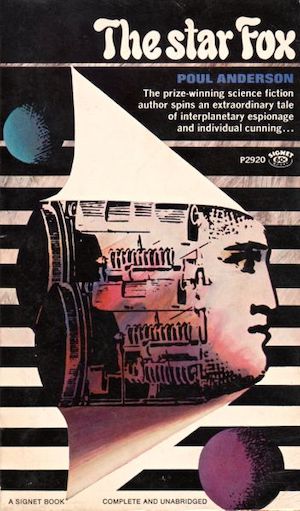
All it took for Earth to embrace global peace was a brush with nuclear extinction. Determined to avoid the mistakes of the past, Terrans refuse to respond to Alerionan provocations. It’s an inspiring demonstration of good character. Too bad for peace that the Aleriona find humans so offensive that they must be eliminated.
“On Thud and Blunder” (1978)
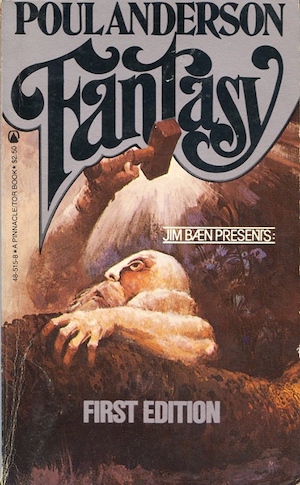
Anderson loved verisimilitude in his world building. This was as true for his fantasy as for his science fiction. Proof can be found in this essay, which discusses and dissects common fantasy tropes.
“Uncleftish Beholding” (1989)
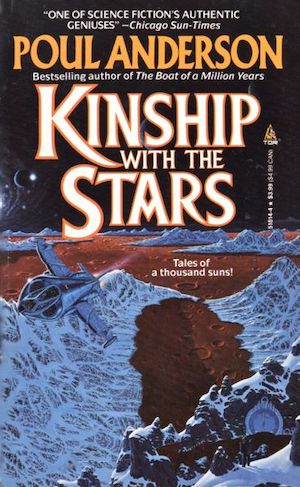
“Uncleftish” is an exercise in speculative linguistics, in which Anderson invents an English which did not pursue French, Greek, and Latin down dark alleys in search of new vocabulary. Nevertheless, this version of English still has to convey the same range of meaning. Anderson suggests how this might be done.
***
Andre Norton (February 17, 1912 — March 17, 2005)
Andre Norton’s career was even longer than Anderson’s, extending from FDR’s second Presidential term to George W. Bush’s first. Like Anderson, she wrote in a wide variety of genres. Unlike Anderson, she focused on novels (although it should be noted that many of those were short enough to be classified as novellas by modern standards). Norton was a go-to author for readers who liked books about ephemeral civilizations, uncanny psychic gifts, and the occasional interdimensional door.
Daybreak — 2250 A.D. (1952)
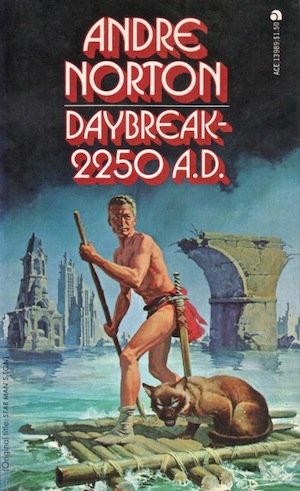
Two centuries after atomic war ended our civilization, a handful of our descendants struggle for survival amid faintly glowing ruins. Fors of the Puma Clan was lucky enough to born in sequestered Eyrie. He was unlucky enough to be an obvious mutant. He might be tolerated in Eyrie but he could never hope to be considered an equal. Finding this unacceptable, Fors sets out to find destiny in the remains of a lost world.
Sargasso of Space (1955)
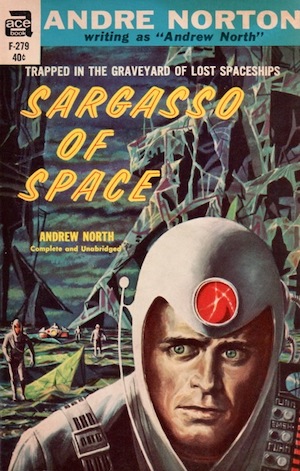
Having clawed his way out of a state orphanage through pluck and merit, merchant trainee Dane Thorson earns a berth as Apprentice Cargo Master. True, the Solar Queen is a vintage starship but Dane is grateful for his opportunity. Only later will Dane discover the Solar Queen’s talent for selecting ill-fated contracts…
Night of Masks (1964)
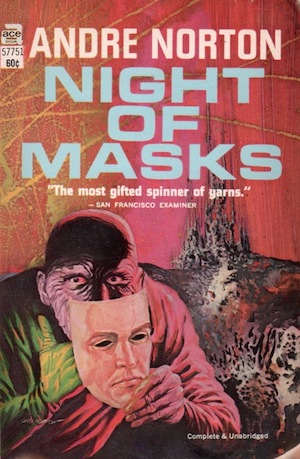
Disfigured in the same war that left him an orphan in Korwar’s notorious Dipple slum, Nik has little hope of ever escaping poverty. When a criminal offers Nik a chance not just for escape but a brand-new face, Nik is not inclined to ask questions. At least, not until Nik is thoroughly implicated in a kidnapping scheme…by which time it is far too late to back out.
High Sorcery (1970)
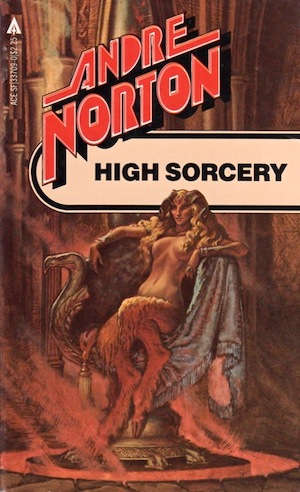
Remember how I said Norton focused on novels rather than short work? She did sometimes write at shorter lengths and this diverse little collection, ranging from straightforward Esper adventures to atmospheric horror pieces, is proof.
Forerunner Foray (1973)
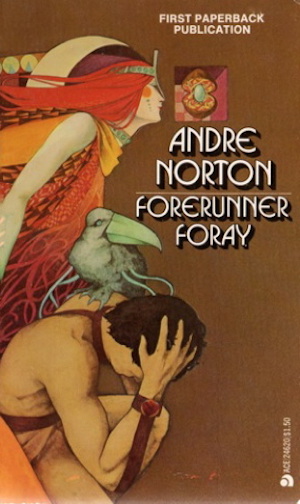
Ziantha’s promising psychic powers were her ticket out of the Dipple and into the Thieves Guild. Master criminals Yasa and Ogan knew potential when they saw it. Under their mentorship, Ziantha has developed her powers while mastering both thievery skills and the art of disguise. As long as she is diligent, obedient, and careful, Ziantha’s survival is assured! At least until such time as Yasa and Ogan decide that she has outlived her usefulness.
***
Tanith Lee (September 19, 1947 — May 24, 2015)
Lee was extraordinarily prolific, writing more than ninety novels in a career that spanned six decades. Many of her works were nominated for SF’s top awards. Wins include Death’s Master (British Fantasy Award), The Gorgon (World Fantasy Award), Elle Est Trois, (La Mort) (World Fantasy Award) and Lifetime Achievement Awards from both World Fantasy and the Stoker. While she remains well known in the UK, her star seems to have faded in North America. Which means that many North Americans are in an excellent position to discover Lee’s work for the first time.
Night’s Master (1978)
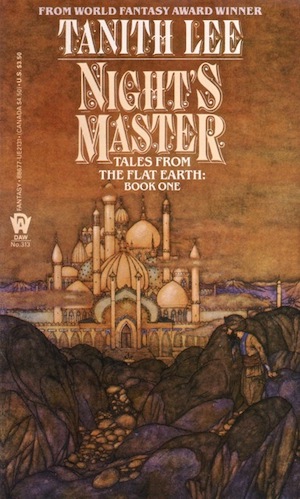
Malicious demon prince Azhrarn loves beauty. A pretty face infatuates him; the owner of the pretty face spurns him. This inspires a nasty revenge. Lather, rinse, repeat. Always unpleasant for the demon’s victims, revenge sometimes works out badly for Azhrarn himself.
The Silver Metal Lover (1981)
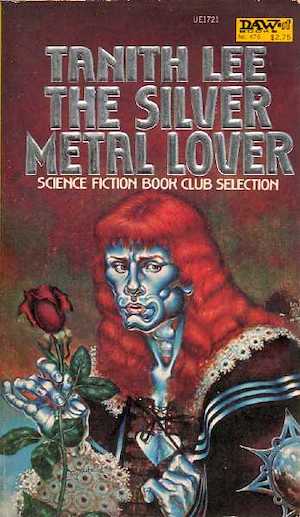
Demeta spares no effort to shape her teenage daughter Jane—not, as you might expect, into a raving beauty, but into an unattractive, insecure, and isolated victim. Jane is to be the ugly companion who makes Demeta even more beautiful in contrast. Jane wants and needs love and eventually finds it. Too bad that it’s a love that society will not accept. Passion between a besotted teen and her enchantingly attractive robot is deemed intolerable.
Sung in Shadow (1983)
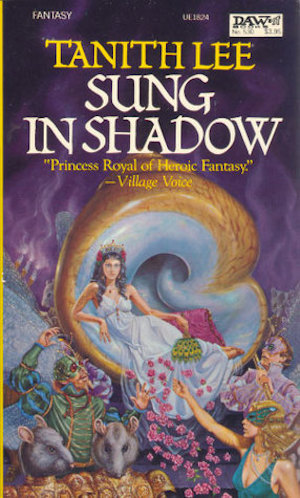
Sana Verensa’s great families delight in endless, bloody feuds. Romulan Montargo embraces debauchery and dueling, until the day he meets cosseted Iuletta Chenti. The Montargos and Chentis are rivals. Romulan and Iuletta should be enemies. Instead, they fall in love. The only plausible outcome is pair of tragic deaths…except this is Sana Verensa, not Verona. Where love and good intentions fail, the dark arts may yet save the day.
Louisa the Poisoner (1995)
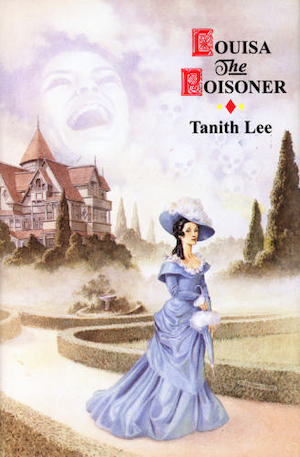
The orphaned Louisa, fostered by a mad, witchy aunt, is orphaned once more when her aunt expires (Louisa’s first poisoning). Lord Maskullance takes pity on the young girl and invites her into his household. Louisa sees riches within her grasp. She is prepared to poison anyone who stands in her way.
Piratica: Being a Daring Tale of a Singular Girl’s Adventure Upon the High Seas (2006)
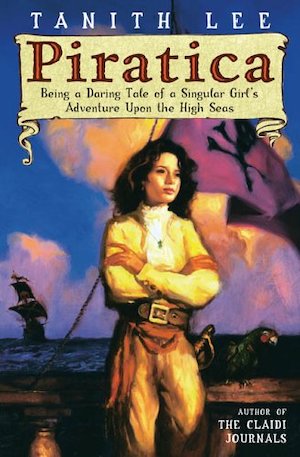
At age sixteen Artemesia recalls a past she had thought lost to amnesia. She now understands why she has never fit in at the Angels Academy for Young Maidens. Art’s mother was none other than the infamous pirate queen Piratica. Art escapes the Academy and embraces her heritage as a ruthless pirate! Although, as Art will discover, certain crucial details about her mother’s career have yet to be revealed.
***
This essay does not touch on those authors still living who, like Anderson, Lee, and Norton, constitute a disproportionate fraction of my library. That is a subject for another essay. No doubt you have your own favourite prolific authors. Feel free to name them in the comments.
In the words of Wikipedia editor TexasAndroid, prolific book reviewer and perennial Darwin Award nominee James Davis Nicoll is of “questionable notability.” His work has appeared in Publishers Weekly and Romantic Times as well as on his own websites, James Nicoll Reviews and the Aurora finalist Young People Read Old SFF (where he is assisted by editor Karen Lofstrom and web person Adrienne L. Travis). He is a four-time finalist for the Best Fan Writer Hugo Award and is surprisingly flammable.










